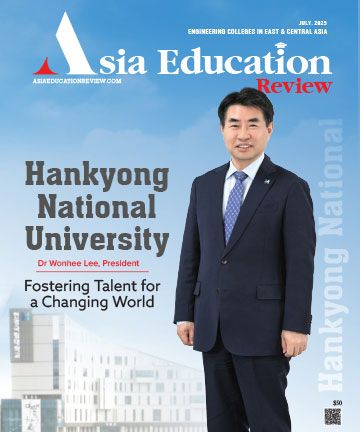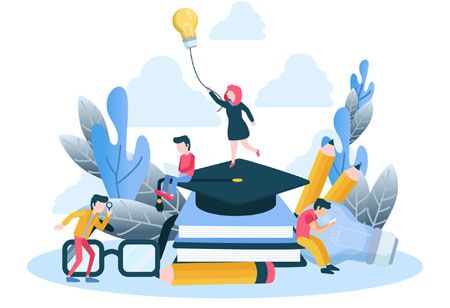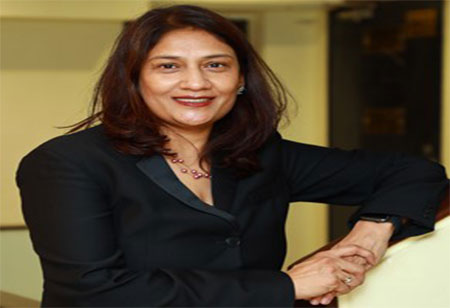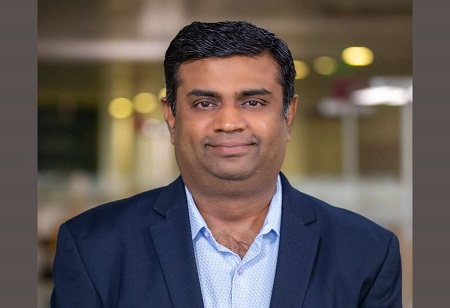Hankyong National University: Fostering Talent for a Changing World
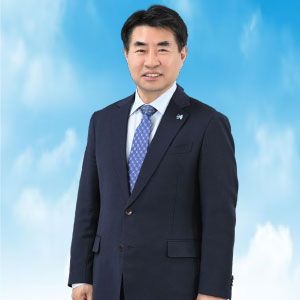
Dr Wonhee Lee
President
South Korea is globally recognized for its strong emphasis on science, technology, and innovation, making it a prime destination for engineering education. The country boasts some of the best engineering colleges in the world, renowned for their cutting-edge research, state-of-the-art facilities, and collaborative industry partnerships. Among the noteworthy institutions in South Korea is Hankyong National University, located in Gyeonggi Province, which offers a unique blend of academic excellence and community involvement.
Relaunched March 1, 2023, through the merger of Hankyong National University (86 years) and Korea National University of Welfare (23 years), Hankyong National University serves as a beacon of innovation and inclusivity in the region. It is the only national university in Gyeonggi Province, which is home to a population of 14 million and borders the capital, Seoul.
Recruiting students twice a year, with early admissions accounting for 80 percent of the total, Hankyong National University also operates a customized admissions system for rural areas, basic livelihood security beneficiaries, and foreigners to ensure equal educational opportunities. Despite the decline in the school-age population in Korea, Hankyong National University maintained a 100 percent admission rate for the 2025 school year, showing strong demand.
The university offers a flexible bachelor's degree system, allowing students to explore multiple majors alongside their primary field of study. Additionally, it has introduced a student-designed major, enabling students to create their own curriculum, fostering self-directed learning and adapting to industry trends and needs.
Inclusive Education & State-of-the-Art Facilities
Hankyong National University is equipped with cutting-edge facilities designed to enhance student learning and foster innovation. One standout feature is the Joint Experimental Practice Center, which offers a range of advanced equipment, including 3D scanners, gas chromatography-mass spectrometry, and high-performance liquid chromatographs. This center allows students to gain hands-on experience with state-of-the-art instruments, bridging the gap between theory and practice. The university continuously invests in new technology, ensuring that students have access to the latest advancements, and the equipment is available to local businesses as well.
“In addition to its scientific facilities, the university has a Distance Education Support Center, which facilitates remote learning, particularly important since the COVID-19 pandemic. The media center, equipped with a studio and editing rooms, allows students, faculty, and even local residents to create content such as YouTube videos”, shares Dr Wonhee Lee, President, Hankyong National University.
Hankyong National University is also a leader in inclusive education, particularly at its Pyeongtaek campus, which serves as a hub for higher education for disabled students. Approximately 30 percent of the admission quota is dedicated to social minorities, including people with disabilities and multicultural families.
The campus is designed with universal accessibility in mind, featuring wide elevators, Braille signage, and accessible restrooms. Special assistive devices, such as electric wheelchairs and adjustable desks, are available, and the university provides support for disabled students in all aspects of life, including learning and transportation.
Moreover, the Pyeongtaek campus houses a Universal Design Experience Center, where students can explore universal design concepts and participate in annual contests and exhibitions. This approach helps students understand real-world challenges and prepares them for careers where inclusivity is essential.
Hankyong National University operates four campuses, each offering unique academic opportunities. The Anseong campus focuses on smart agriculture and IT, addressing global challenges like carbon neutrality and PTSD relief. The Suwon campus fosters research collaborations between universities and industries.
With strong support for international students and a commitment to academic excellence, Hankyong National University continues to be a forward-thinking institution, equipping students for both local and global success.
“At Hankyong National University, one of our key educational goals is to foster creative and convergent future talents. To achieve this, we've reorganized our undergraduate system, introducing a flexible system that allows students to explore additional majors alongside their primary focus. We've also implemented a student-designed major, where students can create their own curriculum with guidance from experts.
This system encourages self-directed learning and helps students grow into versatile professionals. Our faculty actively promotes creativity, evident in the numerous awards our students have won, including prestigious prizes in robotics, communications, solar energy, architecture, and food and nutrition competitions”, shares Dr Wonhee Lee.
Focus on Innovation & Industry Collaboration
Hankyong National University specializes in IT, semiconductors, agriculture, and education for the disabled, with a strong commitment to fulfilling its social responsibility as a national university. The university aims to contribute to national and regional development, aligning with government policies. Recently, Hankyong National University has been focused on supporting the K-semiconductor belt, a major government initiative. It has been selected for the 2024 Industry-tailored Professional Technology Personnel Training Project, aiming to cultivate semiconductor experts through specialized education for industry employees.
The university also embraces educational convergence, where different disciplines intersect to create new fields. Notably, the university has fused IT with agriculture, leading to significant achievements such as using AI to accelerate tomato growth, which earned third place in the 2021 World AI Agriculture Competition.
Additionally, Hankyong National University fosters strong industry-academic partnerships, holding 187 patents, including international rights. Over the past four years, the university has received 843 research orders worth 66.3 billion won from both government and private sectors. In 2024, it secured major government projects in advanced industry talent development and agricultural science. The university collaborates with about 200 companies, providing technical consulting, joint research, and student employment opportunities, enhancing its role as a key player in innovation and technology exchange.
Hankyong National University fosters strong industry-academic partnerships, holding 187 patents, including international rights
Notable Success Stories & Achievements
Hankyong National University has seen remarkable success stories among its graduates. One example is a group of chemical engineering students who, supported by the university's startup program, developed eco-friendly cosmetics using nanocellulose material, which gained attention from NASA. They successfully launched their business, secured an overseas trademark, and even contracted with Amazon.
Another success story involves a graduate from the Department of Landscape Architecture, who became a famous animal keeper. Known as the "Panda Grandfather", he achieved the first natural panda birth in Korea and raised an Indian leopard, earning national recognition.
Additionally, a graduate of the Department of Social Welfare, a disabled ice hockey player, overcame a significant disability and became one of the best players in the world, contributing to Korea's bronze medal win at the 2018 Winter Paralympics.
These stories reflect the diverse talents and achievements of Hankyong National University graduates. The university itself has received numerous accolades, including awards for its contributions to education and social responsibility. Notable recognitions include the Minister of Public Administration and Security Award, Presidential Service Medal, and several awards for its contributions to lifelong learning, innovation in education, and public service, solidifying Hankyong National University's reputation for fostering excellence.
Nurturing Talent & Innovation for Future
Hankyong National University is committed to fostering future talent based on creativity and innovation. To achieve this, the university has established various systems designed to strengthen students' abilities and encourage challenges. One such initiative is the Education Innovation Headquarters, which developed the B.B Core Competency Certification System. "B.B", meaning "Be the Bright", encourages students to excel in six core competencies. Through participation in non-curricular programs, students increase their certification index, earning rewards such as scholarships and certificates from the university president. These certifications provide valuable support for students in securing employment and entrepreneurship opportunities.
The university also has a specialized Employment and Entrepreneurship Support Center, staffed with professionals who provide counseling, employment guidance, and entrepreneurship training. The center offers a systematic employment roadmap for students, starting with adaptation programs in the first year, followed by career exploration in the second year, practical employment preparation in the third year, and mock interviews and job skill development in the fourth year. These initiatives have led to significant results, including funding support from the Ministry of Employment and Labor and winning the grand prize for four consecutive years.
As a result of these efforts, Hankyong National University recorded the highest employment rate among national universities in 2025. The university provides over 250 career programs and one-on-one customized counseling to help students take charge of their career paths and achieve employment success. Industry-academia cooperation is also facilitated through family business linkages and field training.
In conclusion, Hankyong National University’s focus on innovation, employability, and entrepreneurship ensures its students are well-prepared for successful careers and contribute meaningfully to society.
Educational Innovation: Flexible undergraduate system allowing students to explore multiple disciplines and the B.B Core Competency Certification System to foster creativity and innovation.
Industry-Academia Cooperation: Strong collaborations with over 200 companies, facilitating research, technical consulting, and career opportunities for students.
Commitment to Social Responsibility: Focus on contributing to national and regional development, including support for the K-semiconductor belt and innovation in IT and agriculture.
Inclusive Education: Specialized programs for disabled students, including accessible campus designs and support systems for an inclusive learning environment.
Global Perspective: International collaborations and support for students from various countries through Korean language courses and global talent programs.
🍪 Do you like Cookies?
We use cookies to ensure you get the best experience on our website. Read more...

